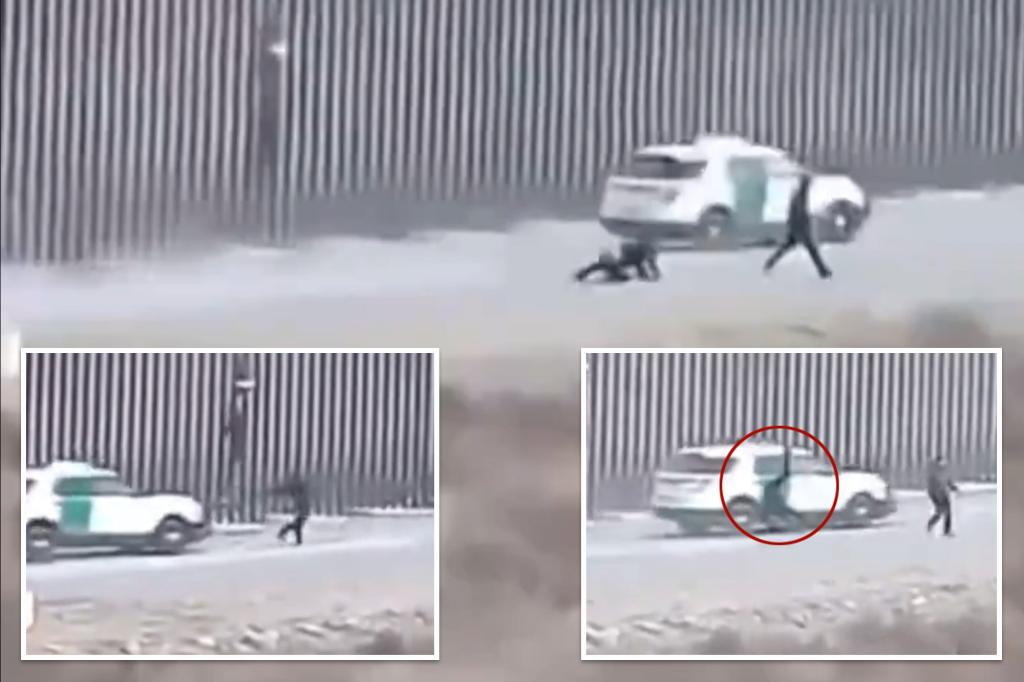The United States Border Patrol along the San Diego sector is facing a potential retaliatory attack from Mexican cartels, stemming from an incident where a Border Patrol agent struck a suspected cartel member with an SUV. The incident, captured on video and widely circulated online, shows an agent driving an SUV towards a group of individuals attempting to illegally cross the border. As the individuals scatter, one man momentarily freezes on the road and is subsequently struck by the vehicle. While the man appeared to recover quickly and flee the scene, the video sparked outrage and condemnation from human rights organizations who accused the agent of intentionally using the vehicle as a weapon. This incident, currently under review by the U.S. Attorney’s Office and CBP’s Office of Professional Responsibility, has ignited tensions between law enforcement and the cartels.
Internal memos circulated within the Border Patrol warn agents of potential retaliatory violence, indicating cartel leadership is angered by the incident, which they perceive as an unprovoked and callous act. The memos emphasize the potential for a shooting attack within the coming days and urge heightened vigilance among all agents, regardless of their assignments. This incident underscores the volatile and often dangerous environment faced by law enforcement agencies operating along the U.S.-Mexico border. The cartels’ purported reaction signifies the high stakes involved in border security operations and the potential for rapid escalation of conflicts.
The incident itself highlights the complexities of border enforcement. Border Patrol officials claim the agent’s focus was on two individuals scaling the border fence, leading to the accidental collision with the man on the road. This explanation, however, has been met with skepticism, particularly following the public release of the video. The contrasting narratives presented by law enforcement and human rights groups further complicate the situation, emphasizing the need for a thorough and impartial investigation. The outcome of this investigation will not only determine the agent’s future but could also significantly influence the ongoing tension with the cartels.
The threat of cartel retaliation comes at a time of heightened security concerns along the border. Just two months prior, the Sinaloa Cartel reportedly issued an order to its members to target Border Patrol agents in western Texas following the arrest of a high-ranking cartel member. This earlier incident, coupled with the recent events in San Diego, illustrates the cartels’ willingness to use violence against law enforcement. These targeted attacks not only endanger the lives of Border Patrol agents but also underscore the pervasive influence and power of these criminal organizations. The cartels’ ability to orchestrate coordinated attacks across different border sectors raises serious concerns about the effectiveness of current security strategies.
The escalating tension between law enforcement and the cartels has far-reaching implications for border security. The potential for retaliatory violence creates a more dangerous environment for Border Patrol agents and necessitates increased vigilance and potentially enhanced security measures. The public scrutiny surrounding these incidents also underscores the need for greater transparency and accountability within law enforcement agencies. A thorough and impartial investigation is crucial not only to address the specific incident but also to build public trust and ensure the responsible use of force by border patrol agents.
Beyond the immediate security concerns, these incidents highlight the broader challenges of border control and the complex relationship between law enforcement and the communities they serve. The ongoing struggle to secure the border, coupled with the potential for violence and human rights violations, necessitates a comprehensive and multifaceted approach. This includes not only enhanced security measures but also addressing the root causes of illegal immigration, fostering collaboration with Mexican authorities, and promoting humane and respectful treatment of all individuals, regardless of their immigration status. Only through a comprehensive approach that prioritizes both security and human rights can lasting solutions to these complex challenges be achieved.










